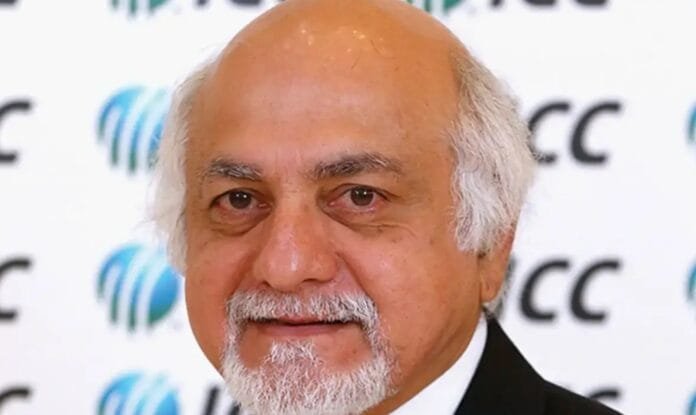If cricket’s power brokers had a backstage, Imran Khwaja would be the man standing just offstage, running the show with calm precision. He doesn’t chase headlines, doesn’t throw weight around, and yet—his fingerprints are on many of the sport’s biggest governance shifts over the past two decades.
Khwaja, a legal mind from Singapore, has risen to become one of the most influential figures in the International Cricket Council (ICC). He’s been involved in moments of chaos and calm, reform and resistance. He doesn’t swing a bat, but he’s shaped the playing field where cricket’s major decisions are made.
In a world where sports administration can sometimes look more like a political maze than a meritocracy, Khwaja’s style stands out: deliberate, inclusive, and measured. He’s not flashy. But behind the suits, statements, and boardroom doors, few figures have had more staying power or quiet influence than him. His approach is more strategy than spectacle—much like mastering an online game like Dragon Tiger, where calm decision-making and reading the play often outweigh sheer boldness.

Early Life and Background
Imran Khwaja was born and raised in Singapore, a nation not typically associated with cricketing power, but one that has steadily built its own legacy within the sport. From the start, Khwaja straddled two passions: the rule of law and the rhythm of cricket.
He studied law and built a strong career in legal practice. But it wasn’t long before his love for cricket pulled him toward the sport’s administrative side. In Singapore, he became a trusted figure in cricket circles—valued not just for his professionalism, but for his instinct to push the game forward in a region often overlooked by the cricketing elite.
Unlike many officials who land in high offices via legacy or connections, Khwaja’s path was built on groundwork. He didn’t inherit cricket administration—he built it from the grassroots up.
Climbing the Ranks: Khwaja’s Journey in Cricket Governance
Imran Khwaja’s rise through the system is a case study in patience and grit. In the early 2000s, he took on leadership roles within the Singapore Cricket Association (SCA), where he began making noise—quietly, strategically. As Chairman of SCA, he focused on development, governance, and creating sustainable cricketing infrastructure in Singapore.
His influence expanded when he joined the ICC Board as an Associate Member representative. There, he quickly earned respect not just for representing a smaller nation, but for thinking like a globalist—someone who understood cricket’s potential beyond its old centres of power.
By 2017, Khwaja had climbed to the role of ICC Deputy Chairman. He wasn’t just representing Singapore anymore—he was steering world cricket, helping manage the sport’s global direction while negotiating the delicate politics between full members and associates.
Leading in Crisis: Acting Chairman of the ICC
In June 2020, as cricket scrambled during the pandemic and leadership questions loomed, Shashank Manohar stepped down as ICC Chairman. Imran Khwaja was thrust into the hot seat as Acting Chairman.
This wasn’t just a temporary gig. The sport was facing an identity crisis. Tensions among big cricketing nations were peaking. The calendar was in shambles. Revenues were uncertain. The governance model was under scrutiny. And into this storm walked Khwaja.
He didn’t overhaul the ship in a blaze of statements. He steadied it. He focused on the essentials: financial clarity, associate inclusion, and long-term planning. While some board members jostled for headlines and control, Khwaja stayed above the fray.
“The game deserves leadership that serves its best interests, not just its most powerful voices.” – Imran Khwaja (ICC Minutes, 2020)
That quote sums him up. Not just a caretaker leader, but a steward with a different vision. He wanted cricket governed by merit, not muscle. And in a world full of sports administrators with inflated egos, that stood out.
Vision and Governance Philosophy
Imran Khwaja’s worldview is simple: cricket doesn’t belong to just three or four nations—it belongs to the world. He has consistently spoken for the rights of associate members, smaller boards, and the need to democratize the sport’s decisions.
He believes that governance needs balance. Not centralised power, but shared responsibility. Under his leadership, ICC working groups were created to look at transparency, inclusion, and fairness—not buzzwords, but policy goals.
He has also taken a strong stance on financial equity. Instead of a system where the “Big Three” dominate earnings, Khwaja has argued for a model that rewards growth and development, especially in emerging cricket nations.
Internally, he’s pushed for better anti-corruption systems, stronger codes of conduct, and a cricket calendar that gives associate nations actual chances to play—and not just sit on the sidelines watching the elite.
Notable Decisions During Khwaja’s ICC Tenure:
- Formed specialized working groups to modernize ICC governance
- Pushed for fairer funding to associate member countries
- Questioned the skewed revenue model that benefits traditional giants
- Advanced anti-corruption strategies with legal frameworks
- Pushed for associate teams to get more international fixtures
While some boardroom rivals preferred politics and optics, Khwaja brought structure and principle. He didn’t bark orders, didn’t bluff in press conferences. He just kept working.
Singapore Cricket and Regional Growth
Imran Khwaja didn’t just show up one day in the ICC boardroom. He built his reputation from the ground up, and it all started with the Singapore Cricket Association (SCA). In a country where cricket lives in the shadow of football and basketball, Khwaja was the one banging the drum for the sport’s survival—and later, its rise.
During the 1990s, he served as a legal advisor to the SCA. But this wasn’t a paper-pushing role. He shaped internal systems, cleaned up procedures, and ensured the board ran like a proper governing body. As Chairman in the early 2000s, Khwaja focused on infrastructure, coaching, and accountability. He helped push Singapore cricket into a new era—setting up high-performance programs, attracting ICC development funding, and raising the region’s expectations.
But Khwaja’s ambitions were never confined to one country. He saw Southeast Asia not just as a fringe area for cricket, but as a potential engine of growth. And through ICC platforms, he championed development projects for Malaysia, Thailand, and Indonesia. He viewed regional uplift as a strategic goal, not a charity case.
Today, Singapore punches above its weight in global cricket politics. That’s no accident. It’s a reflection of Khwaja’s groundwork and his ability to connect local progress with international influence.
Imran Khwaja’s Career Timeline
| Year | Role/Position | Organization |
| 1990s | Legal Advisor | Singapore Cricket Association |
| Early 2000s | Chairman | Singapore Cricket |
| 2008 | ICC Board Member | International Cricket Council |
| 2017 | ICC Deputy Chairman | ICC |
| 2020 | Acting Chairman | ICC |
| 2021–Present | Senior ICC Executive | ICC & Affiliate Committees |
Legacy in the Making
You don’t need to sit in the big chair to call the big shots. Imran Khwaja’s legacy isn’t about a title—it’s about what he’s managed to change while others were playing power games. Even without becoming the permanent ICC Chairman, his influence has been felt where it matters most: policy, reform, and representation.
Khwaja has fought to give associate nations a real voice. He’s challenged the lopsided revenue deals that have for years kept smaller boards scraping for scraps. He’s helped open up pathways for countries like Nepal, the USA, and Oman to play meaningful cricket—not just exhibition matches.
He’s also been the adult in the room during ICC’s more chaotic periods. When full-member boards fell into petty squabbles or pushed national interests, Khwaja kept the broader picture in view—sustainability, fairness, and long-term planning.
Challenges Faced During Tenure
- Bitter standoffs between full member boards over broadcasting and funding
- The COVID-19 pandemic tearing apart tour schedules and planning cycles
- Backlash against governance reforms by boards protecting old privileges
- Balancing diplomacy while maintaining neutrality among rival cricket blocs
- Fighting for associate members’ rights in a system built for the elite
He’s not flashy. He doesn’t do TV soundbites. But inside the ICC, Khwaja is seen as a bridge-builder. Someone who can speak with CEOs from major cricket nations, then turn around and advocate just as hard for smaller, struggling federations.
If cricket is serious about global expansion, Imran Khwaja’s blueprint is what it should follow.
The Unseen Steward of Cricket’s Global Future
In a sport often hijacked by egos, it’s rare to find someone who works quietly, thinks long-term, and still manages to move the needle. Imran Khwaja is that man.
He’s not the face of cricket. He never tried to be. But he’s been its backbone through transition, conflict, and reform. From Singapore boardrooms to ICC emergency meetings, Khwaja has delivered clarity when others went missing.
His contribution lies not in grand speeches but in action. In building systems that outlast headlines. In defending principles when it would’ve been easier to play politics.
And perhaps most importantly, in showing that cricket doesn’t belong to a chosen few—it belongs to anyone with vision, patience, and the will to build.
Frequently asked questions
1. Who is Imran Khwaja?
Imran Khwaja is a seasoned cricket administrator from Singapore who has played a crucial role in shaping both national and international cricket governance. He is best known for his time as the ICC’s Deputy Chairman and his term as Acting Chairman during a key transitional period in 2020.
2. What is his contribution to the ICC?
At the ICC, Khwaja has been a stabilizing force—stepping in during leadership gaps, steering policy discussions, and pushing for governance reforms. He’s consistently championed the rights of associate nations, argued for greater transparency, and worked to ensure that decision-making at the top reflects the sport’s global nature.
3. Why is Imran Khwaja important in world cricket?
While he may not always be front and center, Khwaja has been instrumental in shaping the direction of international cricket. His legal background, diplomatic skill, and commitment to fairness have helped guide the ICC through complex transitions and internal challenges, earning him respect across cricket’s divided landscape.
4. Has he ever been ICC Chairman?
Yes, briefly. Khwaja stepped in as Acting Chairman of the ICC in 2020 following the resignation of Shashank Manohar. Though he was widely respected during this period, he was not elected as the permanent Chairman in the vote that followed.
5. What is his stance on associate cricket nations?
Khwaja has been one of the most consistent advocates for associate nations within the ICC. He believes in growing the game beyond its traditional base, supporting fair revenue models, and giving emerging cricket countries a seat at the table—not just in development programs but in governance itself.


